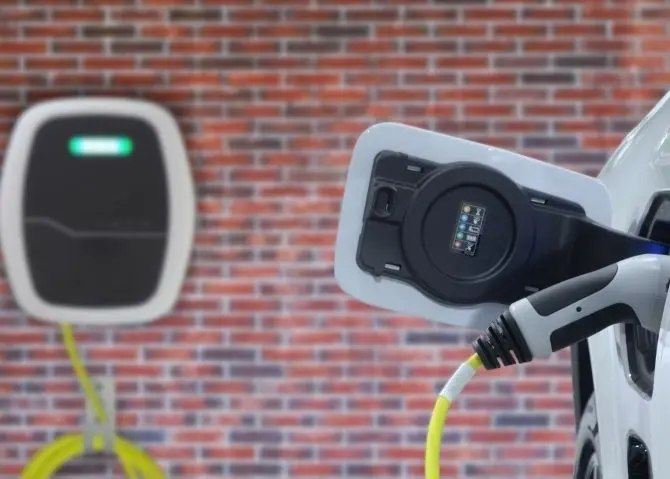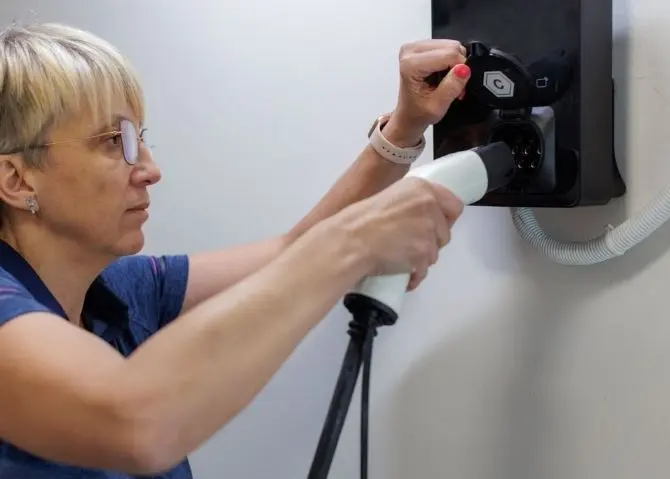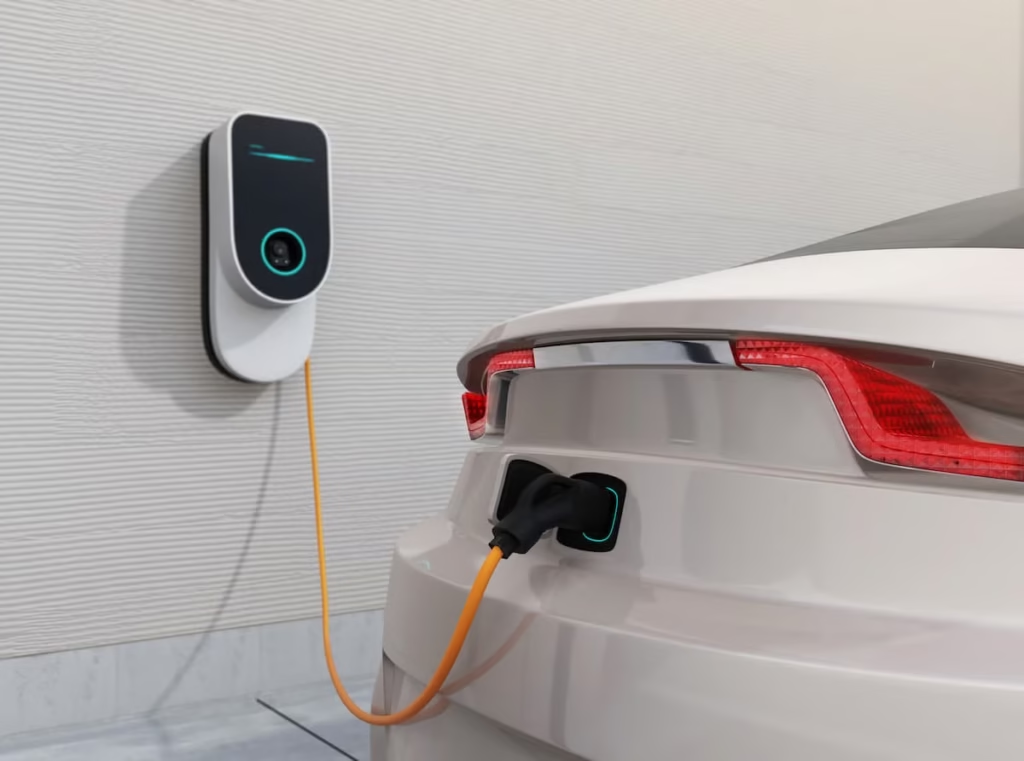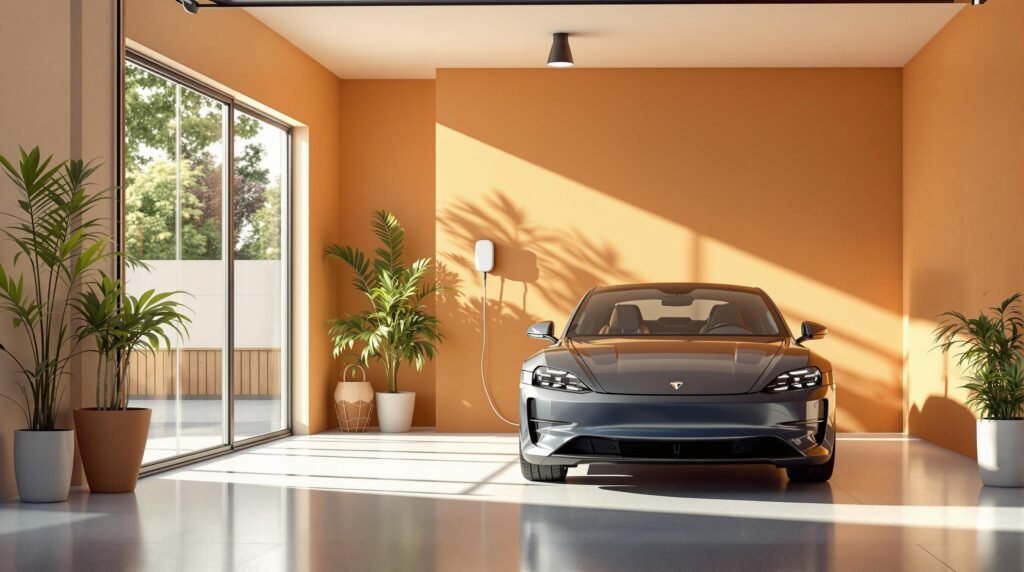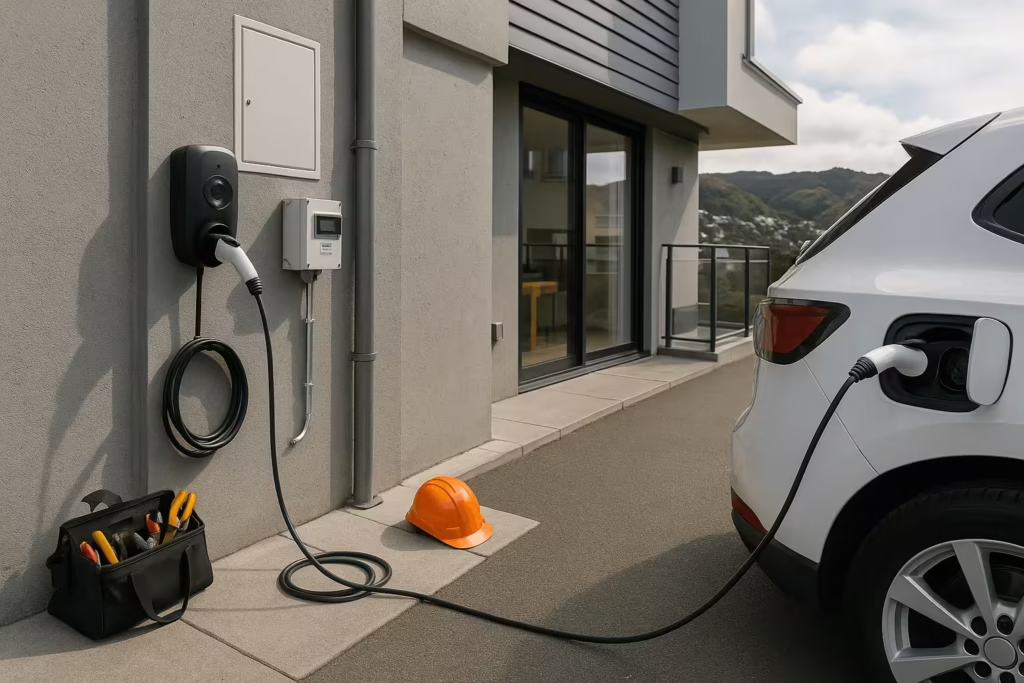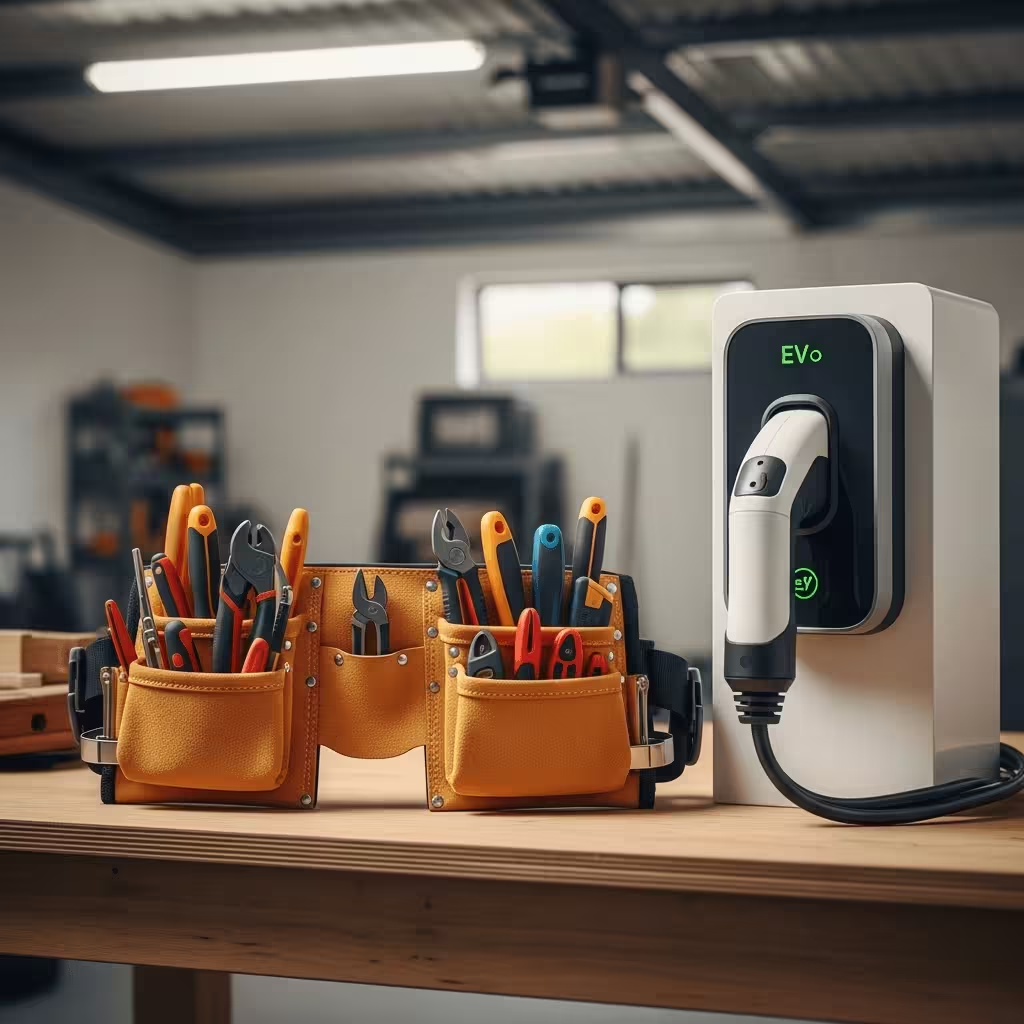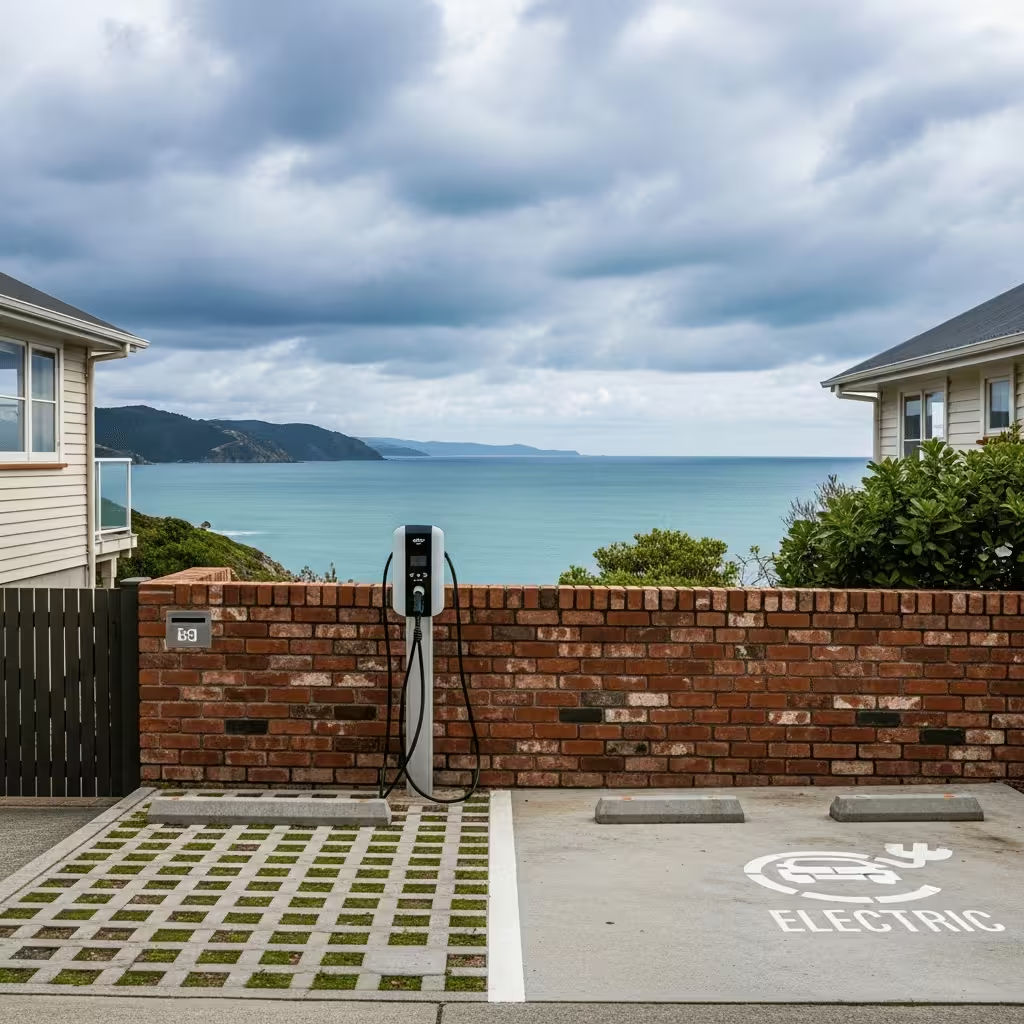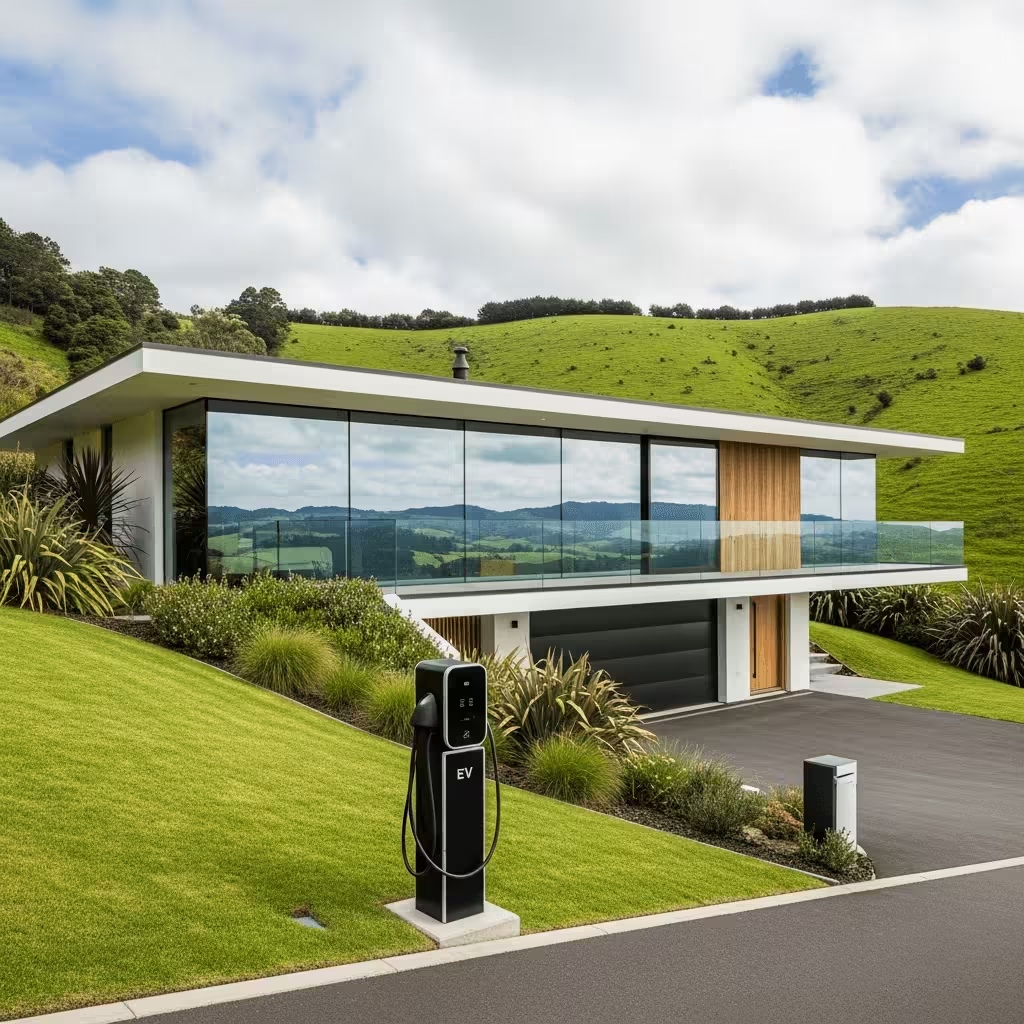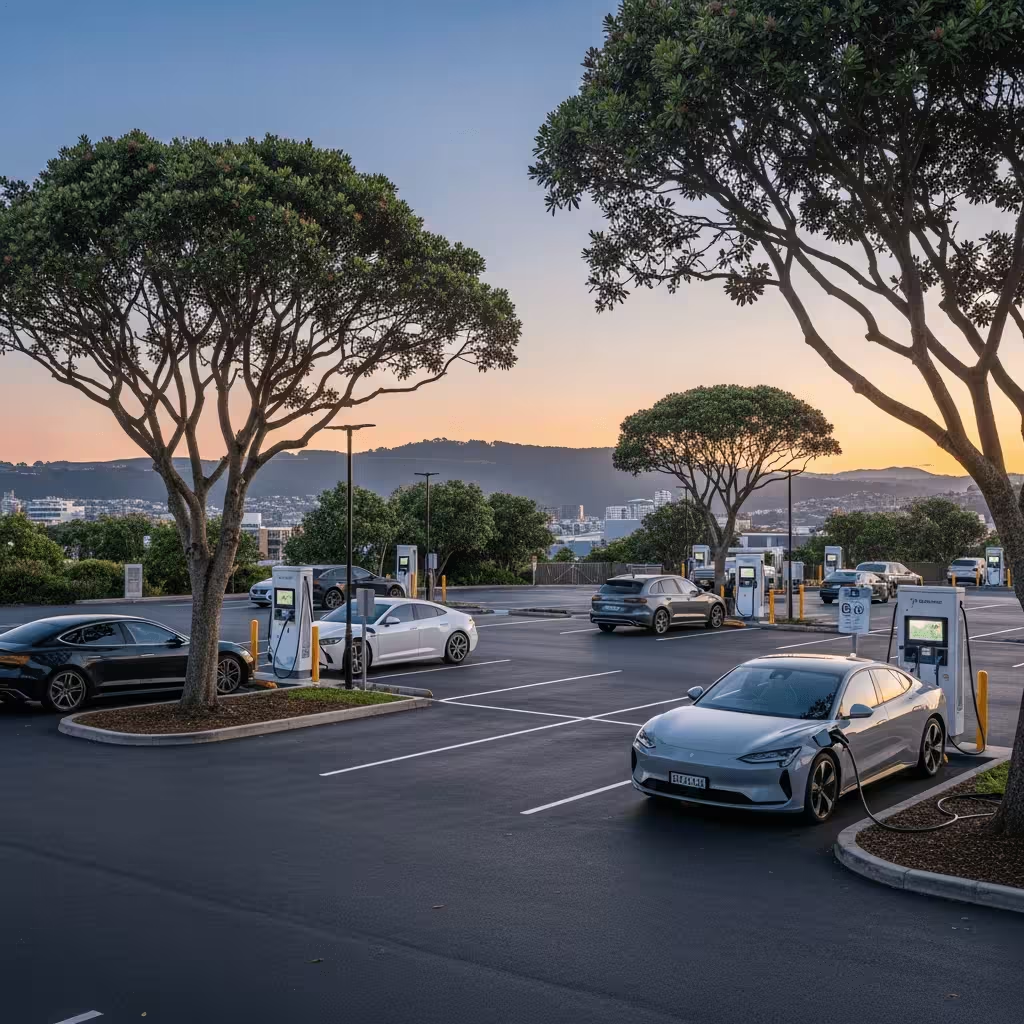As electric vehicles (EVs) become increasingly popular in New Zealand, many Wellington homeowners are asking the same question: is it worth installing an EV charger at home? While charging your EV at public stations is an option, having a dedicated home charger offers unmatched convenience and long-term savings. In this blog, we’ll explore the benefits of home EV chargers, their cost-effectiveness, installation considerations, and why professional installation is essential.
The Benefits of Installing an EV Charger at Home
Owning an electric vehicle is an environmentally friendly and cost-efficient choice. But the experience can be further enhanced with the convenience of a home EV charger. Below are the key benefits that make installing one worth considering:1. Convenience and Time Savings
Charging at home allows you to recharge your EV overnight, ensuring it’s ready for your daily commute or errands. This eliminates the need to visit public charging stations, which can be time-consuming, especially during peak hours. With a home charger, your EV integrates seamlessly into your lifestyle.2. Cost Savings on Charging
Home charging is generally more affordable than using public charging stations, particularly if you take advantage of off-peak electricity rates. In New Zealand, many electricity providers offer discounts during off-peak hours, which can significantly reduce the cost of powering your vehicle.3. Increased Property Value
Installing an EV charger can enhance your property’s value. As EV adoption grows in New Zealand, prospective buyers are likely to view a home EV charger as a desirable feature, especially in urban areas like Wellington, where EV ownership is on the rise.4. Environmental Benefits
Charging at home with electricity sourced from renewable energy providers aligns with New Zealand’s goal of reducing carbon emissions. By charging at home, you can ensure your EV’s energy source is as green as possible.5. Customised Charging Options
Home chargers allow you to set specific charging schedules and monitor energy usage. This control can help you optimise energy efficiency and manage your household’s overall electricity consumption effectively.6. Reduced Wear and Tear on Public Chargers
Using public chargers occasionally rather than as your primary source of energy can reduce the strain on these shared resources. This benefits both the EV community and the broader infrastructure.Local Considerations for Wellington Residents
Wellington’s hilly terrain and variable weather make EV chargers particularly useful for maintaining a consistent range. For EV owners in the Wellington region, having a fully charged vehicle before heading out ensures reliability, even on longer trips or when road conditions require more energy.
Cost Considerations for Installing a Home EV Charger
When deciding if it’s worth installing a home EV charger, understanding the associated costs is crucial. From the initial setup to long-term savings, there are several financial factors to consider for Wellington homeowners. Below, we’ll explore the key aspects of EV charger costs in detail.
1. Upfront Costs of EV Charger Installation
The initial cost of installing an EV charger varies depending on several factors. Here’s what to account for:
- Charger Type: Level 2 chargers are the most common for home use in New Zealand. These chargers cost between $1,000 and $3000 NZD. They are significantly faster than standard wall sockets, delivering a full charge in just a few hours.
- Electrical Upgrades: Your home’s electrical system may need upgrades to handle the additional power demand of an EV charger. Common upgrades include a new circuit breaker, additional wiring, or an updated switchboard. These upgrades can range from $500 to $2,000 NZD.
- Installation Fees: Professional installation by a licensed electrician is essential. This ensures compliance with New Zealand’s electrical safety regulations and guarantees proper performance. Installation fees typically range from $500 to $1,500 NZD, depending on the complexity of the setup.
On average, the total upfront cost for installing a home EV charger can range from $2,000 to $5,000 NZD.
2. Long-Term Savings
While the upfront costs may seem significant, having a home EV charger can lead to considerable long-term savings:
- Lower Charging Costs: Charging your EV at home is usually cheaper than using public chargers. In New Zealand, off-peak electricity rates offered by providers like Meridian Energy or Genesis Energy can reduce charging costs even further.
- Minimising Public Charger Fees: Public charging stations often come with usage fees, especially for rapid charging. With a home charger, these costs can be avoided, saving you money over time.
- Reduced Maintenance Costs: Regular home charging puts less strain on your EV compared to frequent rapid charging at public stations, which can help preserve the lifespan of your car’s battery.
For a Wellington homeowner driving 15,000 km annually, home charging at off-peak rates could save hundreds of dollars per year compared to public charging.
3. Impact on Electricity Bills
Adding an EV charger will increase your electricity usage, but the impact is manageable. A typical EV consumes about 15–20 kWh of electricity per 100 km. Assuming an annual driving distance of 15,000 km, your EV would use 2,250–3,000 kWh of electricity annually. At an average cost of $0.25 NZD per kWh, this translates to $562.50–$750 NZD per year in charging costs.
Charging during off-peak hours can lower this further. For example, some providers offer off-peak rates as low as $0.10–$0.15 NZD per kWh, reducing annual charging costs to just $225–$450 NZD.
4. Is a Smart EV Charger Worth the Extra Cost?
Smart EV chargers come with advanced features, making them a popular choice for tech-savvy homeowners. These features include:
- Automatic off-peak charging to reduce electricity costs
- Remote monitoring and control via a mobile app
- Energy usage tracking to optimise household consumption
- Integration with solar panels for sustainable charging
While smart chargers can cost $300–$500 NZD more than standard chargers, the convenience and energy management benefits can justify the additional investment, particularly for households looking to maximise efficiency.
5. Government Incentives and Rebates
Currently, New Zealand does not have nationwide subsidies specifically for home EV chargers. However, regional initiatives or incentives for EV adoption may emerge as the country progresses toward its carbon-neutral goals. It’s worth checking with local authorities or energy providers for any available grants or rebates.
6. Long-Term Value for Wellington Residents
Wellington’s growing EV adoption means a home EV charger is a forward-thinking investment. It not only saves time and money but also enhances your property’s value. Potential buyers are likely to see a home with an installed EV charger as a desirable feature, particularly as EV ownership continues to rise across New Zealand.
Furthermore, Wellington’s challenging terrain and variable weather make it essential to have a full charge at the start of your journey. Home charging ensures your EV is always ready, providing peace of mind for long commutes or trips across the region.
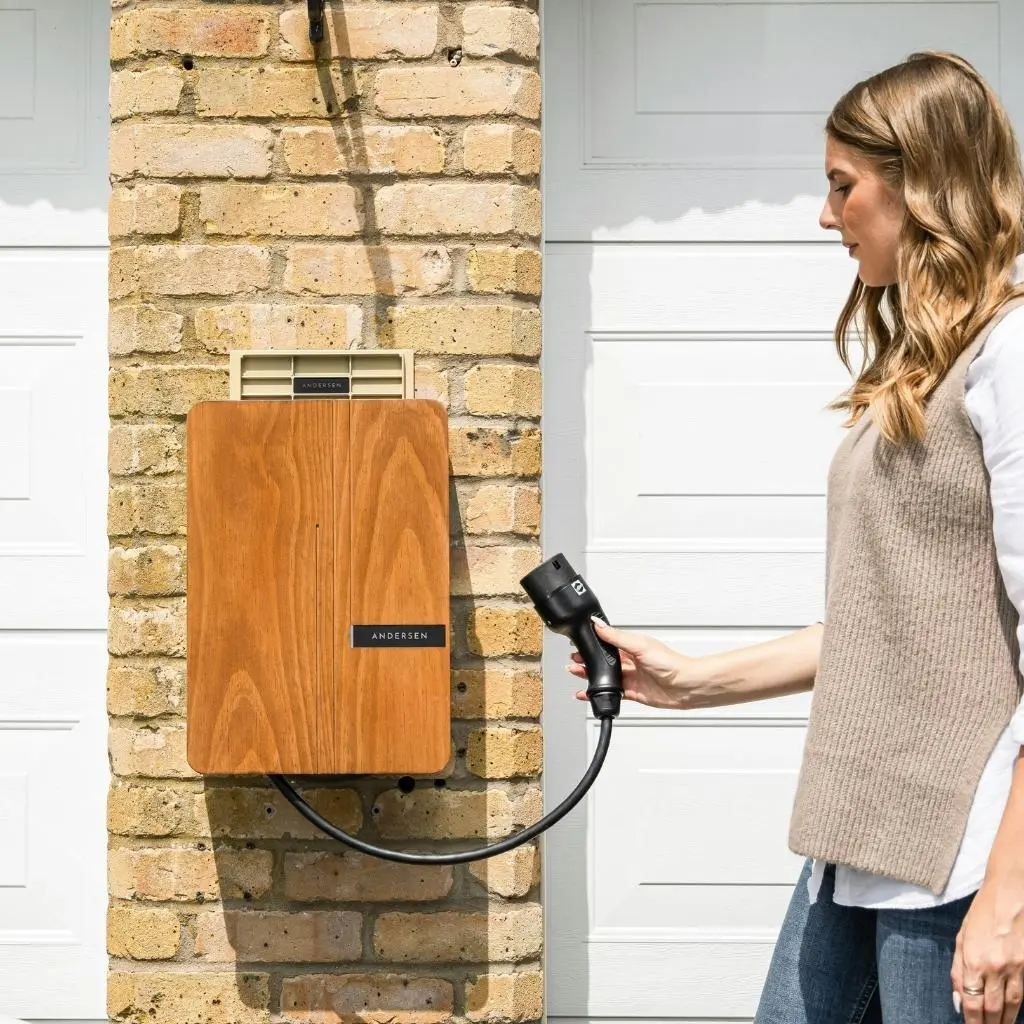
Key Considerations When Installing a Home EV Charger
Installing a home EV charger is a practical choice, but there are important factors to consider to ensure it’s safe, efficient, and compliant with New Zealand regulations. This section outlines the essential points you need to know before proceeding with the installation.1. Choosing the Right Type of EV Charger
Not all EV chargers are the same. Selecting the right charger depends on your vehicle, driving habits, and home setup.- Level 1 Chargers: These use a standard wall outlet and provide slow charging speeds, typically adding 8–10 km of range per hour. While inexpensive, they are impractical for most EV owners due to their lengthy charge times.
- Level 2 Chargers: Ideal for home use, these chargers require a dedicated circuit and can add 30–50 km of range per hour. They’re faster, more efficient, and more common for residential installations.
- Smart Chargers: These advanced Level 2 chargers include features like scheduling, energy monitoring, and integration with solar systems. While more expensive, their functionality makes them an excellent investment for many Wellington homeowners.
2. Assessing Your Home’s Electrical Capacity
Before installing an EV charger, it’s essential to evaluate your home’s electrical infrastructure to determine if it can handle the increased demand. Key considerations include:- Switchboard Capacity: Older homes may have limited switchboard capacity. Upgrading your switchboard or installing a dedicated circuit for the charger may be necessary.
- Current Wiring Setup: Homes with outdated wiring may need upgrades to safely support the power requirements of a Level 2 charger.
- Peak Energy Use: Adding an EV charger to your home increases electricity demand. It’s important to assess how this fits into your household’s current energy usage to avoid overloading the system.
3. Installation Location
Where you install your EV charger is just as important as how you install it. Consider the following when selecting the location:- Proximity to Parking: The charger should be installed near your designated parking spot to ensure the cable can reach your EV easily.
- Weather Protection: While most EV chargers are weather-resistant, installing the unit in a sheltered area, such as a garage or under a carport, can extend its lifespan.
- Cable Management: Properly routing and securing the cable reduces trip hazards and ensures a tidy, safe setup.
4. Compliance with New Zealand Regulations
Electrical installations in New Zealand are subject to strict safety standards. When installing a home EV charger, the following compliance measures are essential:- Licensed Electrician: All EV charger installations must be carried out by a licensed electrician. This ensures the setup complies with AS/NZS 3000:2018 (the Australian/New Zealand wiring rules).
- RCD Protection: Residual Current Device (RCD) protection is mandatory for EV chargers to safeguard against electric shocks.
- Inspection and Certification: Once installed, the charger must be tested and certified by the electrician to confirm it meets safety and performance standards.
5. Integration with Solar Power
For Wellington homeowners looking to maximise sustainability, integrating an EV charger with a solar power system can be a game-changer. By charging your EV directly from your solar panels, you can significantly reduce charging costs and your carbon footprint. Many smart chargers are designed to sync with solar inverters, allowing you to optimise solar energy usage.6. Future-Proofing Your Installation
EV adoption is on the rise in New Zealand, and future-proofing your home charger installation is a wise investment. Here’s how to plan ahead:- Higher Capacity Circuit: Install a circuit that can support higher power outputs to accommodate faster charging technologies in the future.
- Dual Charger Capability: If your household may own multiple EVs, consider installing infrastructure that supports two chargers to avoid costly upgrades later.
- Smart Technology: Opt for chargers with Wi-Fi connectivity and software updates to ensure your system stays compatible with future advancements.
7. Hiring the Right Professionals
The success and safety of your EV charger installation depend on the expertise of the installer. Hiring a licensed and experienced electrician ensures:- Compliance with safety regulations
- Proper assessment of your home’s electrical system
- Safe integration of the charger into your household power supply
8. Costs of Maintenance
While EV chargers are generally low maintenance, periodic checks are recommended to ensure they remain in good working condition. This may involve:- Inspecting cables and connectors for wear and tear
- Ensuring firmware updates are applied to smart chargers
- Verifying RCD functionality as part of your home’s electrical safety routine

The Future of EV Charging in Wellington
As electric vehicles (EVs) continue to gain popularity in Wellington and across New Zealand, the demand for efficient and reliable charging solutions is growing rapidly. Installing a home EV charger not only benefits your household now but also prepares you for advancements in EV technology and infrastructure. Here’s what the future holds for EV charging and how Wellington residents can stay ahead.1. Growing EV Adoption in Wellington
Wellington is at the forefront of New Zealand’s sustainability movement, with many residents choosing EVs as part of their commitment to reducing carbon emissions. The Clean Car Discount and other government incentives have made EVs more affordable, encouraging more people to switch from traditional petrol-powered vehicles. As EV ownership rises, having a home charger will soon become a standard feature for many households. With public charging stations often in high demand, a dedicated home charger provides the convenience of always starting your day with a fully charged vehicle.2. Emerging Technologies in EV Charging
The future of EV charging is being shaped by innovative technologies that will transform the way we power our vehicles. Some of the most exciting advancements include:- Ultra-Fast Chargers: While ultra-fast chargers are currently more common in public spaces, they are gradually being adapted for residential use. These chargers can fully recharge an EV in under an hour, providing unmatched convenience for busy households.
- Vehicle-to-Grid (V2G) Technology: V2G technology allows EVs to send power back to the grid during peak demand periods. This capability not only supports grid stability but can also serve as a backup power source for your home during outages.
- Wireless Charging: Wireless or inductive charging is an emerging technology that eliminates the need for cables. By simply parking your EV over a charging pad, you can recharge your vehicle. While this technology is still in development, it’s expected to become a viable option in the future.
- Smart Charging Systems: Advanced smart chargers with real-time energy monitoring and AI-driven optimisation are becoming more accessible. These systems can automatically adjust charging based on electricity rates, solar production, or household energy use.
3. Preparing Your Home for the Future
Installing a home EV charger today is a step toward future-proofing your home. To ensure your setup is ready for the next generation of charging technologies, consider the following:- High-Capacity Circuits: Install electrical circuits that can handle higher power outputs. This will allow you to upgrade to ultra-fast chargers or support multiple EVs as your household grows.
- Smart Charger Selection: Opt for a smart charger with software update capabilities. These chargers can integrate with new technologies like V2G, wireless charging, and advanced energy management systems.
- Renewable Energy Integration: If you have solar panels or are considering installing them, ensure your EV charger is compatible with solar energy systems. This enables you to power your EV using clean, renewable energy, reducing your reliance on the grid.
- Battery Storage Systems: Pairing your EV charger with a home battery system can maximise the use of stored solar energy, further reducing electricity costs and your carbon footprint.
4. Supporting Wellington’s Public Charging Network
Wellington’s public EV charging network is expanding, with new stations being installed across the region. While these stations provide essential support for EV drivers, they can sometimes be busy, especially in high-demand areas. Having a home EV charger reduces your reliance on public infrastructure, giving you the convenience of charging on your schedule. By charging at home, you also contribute to reducing congestion at public charging stations, freeing up resources for those who rely on them. This support is vital as more Wellington residents transition to electric vehicles.5. Environmental and Financial Benefits
The future of EV charging aligns closely with New Zealand’s goal of achieving carbon neutrality. By combining home EV charging with renewable energy sources, you can significantly lower your household’s carbon footprint while saving money on electricity. Charging during off-peak hours or using solar energy can further reduce costs. Additionally, V2G technology may eventually allow EV owners to earn credits or payments by supplying energy back to the grid during peak periods.6. Long-Term Value for Your Property
Installing an EV charger is an investment that can enhance the long-term value of your property. As EV adoption grows, homes with dedicated charging infrastructure are becoming increasingly desirable. Future buyers will see a home EV charger as a modern convenience, especially in a progressive city like Wellington. Preparing your property now ensures it remains competitive in the market and aligned with future technology trends.7. Staying Ahead in a Rapidly Evolving Market
The EV industry is evolving quickly, and staying informed is crucial. By working with experienced professionals like Weka Electrical, you can ensure your EV charging setup is not only functional but also ready for future innovations. Our team keeps up-to-date with the latest developments, providing expert advice and installations that stand the test of time. With Weka Electrical’s expertise, you can confidently embrace the future of EV charging while enjoying the immediate benefits of a safe, efficient, and reliable home charger.
Why Choose Weka Electrical for Your Home EV Charger Installation
When it comes to installing a home EV charger, professional expertise is critical to ensure safety, efficiency, and compliance with regulations. At Weka Electrical, we pride ourselves on delivering high-quality electrical services tailored to the unique needs of Wellington homeowners. Here’s why Weka Electrical is the trusted choice for your EV charger installation.
1. Local Expertise
Weka Electrical understands the specific requirements of homes in the Wellington region. From older properties requiring electrical upgrades to new builds ready for EV charging infrastructure, we tailor our services to suit your home’s setup.
Wellington’s unique challenges, such as its hilly terrain and unpredictable weather conditions, demand reliable and durable electrical solutions. Our experienced team ensures that your EV charger is installed in a location and manner that provides maximum convenience and performance, even in adverse conditions.
2. Licensed and Experienced Electricians
At Weka Electrical, our team consists of fully licensed electricians with extensive experience in EV charger installation. We specialise in both simple setups and complex installations that may involve significant electrical upgrades.
Every installation we perform complies with New Zealand’s strict electrical safety regulations, including the AS/NZS 3000:2018 wiring standards. Our electricians undergo regular training to stay up-to-date with the latest technologies and best practices, ensuring your EV charger is installed safely and efficiently.
3. Comprehensive Services
We offer end-to-end solutions for EV charger installations, making the process seamless and hassle-free for our customers. Our services include:
- Assessing your home’s electrical capacity and identifying necessary upgrades
- Recommending the best EV charger models to suit your needs
- Installing Level 2 and smart chargers with precision and care
- Integrating your charger with solar panel systems for sustainable energy use
- Conducting post-installation testing and certification for compliance
- Providing ongoing support and maintenance to ensure long-term performance
Whether you’re installing a charger for the first time or upgrading an existing system, Weka Electrical provides the expertise and personalised solutions you need.
4. Commitment to Safety
Safety is a top priority at Weka Electrical. We ensure that every EV charger installation adheres to New Zealand’s safety regulations and is equipped with essential features such as Residual Current Device (RCD) protection to prevent electric shocks.
Our team conducts thorough inspections and testing after every installation to certify the setup is safe, efficient, and ready for use. Additionally, we educate our customers on best practices for safely operating and maintaining their EV chargers, empowering you with the knowledge to use your system confidently.
5. Transparent Pricing
We believe in providing upfront, transparent pricing for all our services. Before we begin any work, you’ll receive a detailed quote outlining the costs of installation, equipment, and any necessary electrical upgrades.
Our goal is to deliver value without unexpected surprises, ensuring you get the best service within your budget. We can also provide advice on how to reduce ongoing charging costs by utilising off-peak electricity rates and other energy-saving strategies.
6. Customer-Centric Approach
At Weka Electrical, we prioritise customer satisfaction in every project we undertake. From your initial enquiry to the final installation, you’ll experience a professional and friendly approach that focuses on your specific needs.
Our team takes the time to understand your requirements, recommend tailored solutions, and schedule installations at a time that works best for you. We’re committed to ensuring the entire process is smooth, stress-free, and exceeds your expectations.
7. Supporting Wellington’s Move to Sustainable Energy
As a proud local business, Weka Electrical is passionate about supporting Wellington’s transition to sustainable energy. By helping homeowners and businesses adopt EV technology, we’re contributing to a greener future for our community.
We can guide you on integrating your EV charger with solar panels or other renewable energy systems, maximising your environmental impact while reducing costs. Together, we can help Wellington lead the way in sustainable living.
8. Contact Weka Electrical Today
Ready to install your home EV charger? Weka Electrical is here to help. As a trusted local electrician in Wellington, we have the expertise, reliability, and dedication to deliver a safe, efficient, and high-quality installation tailored to your needs.
Call Weka Electrical, the top Wellington electrician today at 021 0914 5069 or fill out our online enquiry form to book a consultation. Let’s make your transition to electric vehicle ownership seamless and hassle-free.
FAQ: Is It Worth Installing an EV Charger at Home?
Installing a home EV charger is an important decision for many Wellington residents transitioning to electric vehicles. To help you make an informed choice, here are answers to some of the most frequently asked questions about home EV chargers.1. How much does it cost to install a home EV charger in Wellington?
The cost of installing a home EV charger in Wellington typically ranges from $2,000 to $5,000 NZD. The exact price depends on factors such as:- The type of EV charger (e.g., Level 2 or smart charger)
- Whether your home requires electrical upgrades like a new switchboard or circuit
- Installation complexity and labour costs
2. Can I install an EV charger myself?
No, it is not safe or legal to install an EV charger yourself in New Zealand. EV charger installations must be carried out by a licensed electrician to comply with electrical safety standards, such as the AS/NZS 3000:2018 wiring rules. DIY installations can result in electrical hazards, damage to your charger or vehicle, and voided warranties or insurance policies.3. Do I need to upgrade my electrical system for a home EV charger?
Some homes, particularly older ones, may require upgrades to their electrical system to support an EV charger. Key areas to assess include:- Switchboard capacity: Older switchboards may need replacement or additional circuit breakers installed.
- Wiring: Homes with outdated wiring may need new circuits to safely handle the increased load.
- Overall electrical load: Your household’s total electricity usage, including appliances, should be evaluated to avoid overloading the system.
4. What is the difference between Level 1 and Level 2 EV chargers?
The main difference between Level 1 and Level 2 chargers is charging speed and power requirements:- Level 1 Charger: Uses a standard 240V wall outlet and provides slow charging speeds (typically 8–10 km of range per hour). While inexpensive, Level 1 chargers are not practical for most EV owners due to their lengthy charge times.
- Level 2 Charger: Requires a dedicated circuit and delivers faster charging (30–50 km of range per hour). Level 2 chargers are the preferred choice for home installations in Wellington, offering a balance of speed and efficiency.
5. Are there government incentives for installing a home EV charger in New Zealand?
Currently, there are no widespread subsidies specifically for home EV chargers in New Zealand. However, the Clean Car Discount can help offset the upfront cost of purchasing an EV, freeing up budget for installing a home charger. It’s worth checking with local councils or electricity providers for any regional initiatives or rebates that may apply to EV charging infrastructure.6. Can I integrate my EV charger with solar panels?
Yes, many EV chargers are compatible with solar panel systems, allowing you to charge your vehicle using renewable energy. Integrating your EV charger with solar panels has several benefits:- Lower electricity costs by using free solar energy
- Reduced reliance on the grid, especially during peak periods
- Greater environmental sustainability by powering your EV with clean energy
7. How much will a home EV charger increase my electricity bill?
The impact on your electricity bill depends on your EV usage. A typical EV consumes 15–20 kWh per 100 km. For a Wellington driver averaging 15,000 km annually, this equates to an additional 2,250–3,000 kWh per year. Based on average electricity rates of $0.25 NZD per kWh, this translates to $562.50–$750 NZD per year. You can reduce costs by:- Charging during off-peak hours when electricity rates are lower
- Using solar power if available
- Maximising energy efficiency with a smart EV charger
8. Is a smart EV charger worth the investment?
Smart EV chargers offer advanced features that enhance convenience and efficiency, such as:- Scheduling charging during off-peak hours
- Real-time monitoring of energy usage
- Integration with renewable energy sources like solar panels
- Remote control via mobile apps
9. How long does it take to install a home EV charger?
The installation process typically takes 2–4 hours for a straightforward setup. However, installations that require electrical upgrades, such as a switchboard replacement, may take a full day or more. Your electrician will provide a timeline based on your specific requirements.10. Can I charge multiple EVs at home?
Yes, you can charge multiple EVs at home with the right infrastructure. Options include:- Installing two separate chargers with dedicated circuits
- Using a charger with dual connectors for simultaneous charging
- Upgrading your switchboard to handle the additional electrical load
Whether it’s a minor repair or a full electrical installation, our experienced team at Weka Electrical is ready to assist. We deliver high-quality workmanship, ensuring your electrical systems are safe and efficient. Trust our expert Wellington electrician for all your electrical needs.

